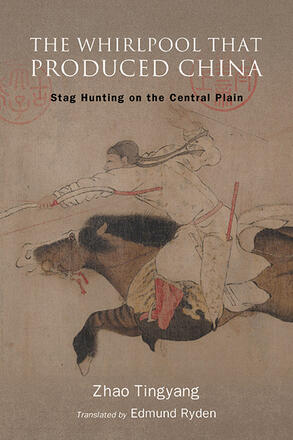
The Whirlpool That Produced China
Stag Hunting on the Central Plain
Provides a philosophical, cultural, and historical answer to the question: Where did China come from?
Description
In The Whirlpool That Produced China, Tingyang Zhao offers a philosophical interpretation of China's historicity, explaining how the expansion of China was not due to the lures of expansionist behavior but to the offerings of the surrounding contenders as they were constantly being pulled into a whirlpool of growth and amalgamation. The peoples surrounding China on all four sides sought to win the greatest material benefits and greatest spiritual resources by shaping their ways of thinking and living around the evolving core culture of the central plains. Zhao also investigates how the tianxia vision of world order was able to dissolve the fierce currents of contention and create out of them the inclusive model of many cultures and many peoples with many forms of governance. He explains these reasons for why China became China by weaving together ontology with game theory methodology: the "stag hunt." Ultimately, Zhao addresses the question of how ancient China became such an irresistible attraction—a stag—to its vital periphery that once a population and territory was drawn into the game, or the whirlpool, it was difficult if not impossible to withdraw.
Tingyang Zhao is Professor in the Institute of Philosophy at the Chinese Academy of Social Sciences and a senior fellow of Peking University Berggruen Research Institute. He is the author of All Under Heaven: The Tianxia System for a Possible World Order and Redefining a Philosophy of World Governance.
Reviews
"In this succinct yet ample work, Tingyang Zhao provides a profoundly original philosophical interpretation of China’s story. In his efforts to interpret China's historicity philosophically, Zhao touches on many questions in many relevant areas of knowledge, from the discovery of the oracle bone script and China's exciting century of archaeology in which the ancient silk and bamboo manuscripts are continuing to be recovered, to the theorizing of China's history of thought and its sociology, politics, and economics." — from the Foreword by Roger T. Ames